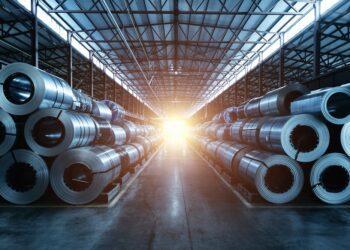Lost in today’s trade debate is the primary question: Is America being treated fairly? Those answering the question “yes” can preemptively dismiss Trump’s tariff strategy.
However, if, as most Americans believe, the answer is “no,” then it invites the question of whether we address it, and if so, how. With his tariff strategy, Trump has given his answers.
There’s no such thing as free trade. It’s like a frictionless machine in physics or zero transaction costs in economics. They don’t exist, except as goals toward which we strive. This doesn’t mean the concepts don’t serve a useful purpose, despite our acceptance that they can’t be achieved.
Free trade’s most useful purpose is as a yardstick for measuring our trade relationships. That America’s tariff relationships are frequently imbalanced (both by tariffs and non-tariff barriers) to our exports’ detriment and our domestic jobs’ loss — often significantly — is irrefutable.
This then poses a choice: Do we accept the barriers to free trade or attempt to reduce them? If the goal is truly free trade, then we cannot accept them.
So, how do we seek to reduce them? “Negotiate them away” is the historical response. Yet what incentive do trading partners who hold disproportionate advantages have to negotiate these away? Unless they are offered an equally disproportionate advantage, which of course, leaves America disadvantaged, they have no incentive to negotiate away their advantages.
As a result, for decades, they have not. Which is why America continues to face the barriers we do.
Therefore, something new must enter the equation; something to bring trading partners enjoying a tilted playing field into fair negotiations: a disadvantage, something they want to go away and are willing to bargain to make happen. This is what Trump has attempted to do unilaterally with his sweeping tariffs.
We must view tariffs not as a permanent solution, but as applied leverage. But hasn’t Trump failed to indicate that the tariffs are only temporary?
Yes, but ask yourself: What leverage would tariffs provide in negotiations were he to say up front that they are merely temporary? Those facing them would know they simply had to wait those temporary tariffs out.
The administration’s 90-day pause on its “reciprocal” tariffs (except on China) and its repeated April 9 claim that over 75 nations have approached the administration to negotiate on trade also bear this interpretation out.
Presuming that Trump’s tariffs are enough to bring some trading partners to the table, and that both sides want to improve their positions, shouldn’t the outcome be one that more closely approaches the free trade yardstick than what existed before?
Wouldn’t the outcome be freer trade, which was the stated goal of everyone — including those who opposed Trump’s tariffs on free trade grounds?
In the debate thus far focus has been on Trump and his tariffs. What of the defenders of the status quo?
No small number benefits from today’s unequal market access. They are exporters to the U.S. and importers in the U.S. who profit under the current unequal trade. For decades, they have been the pallbearers of other Americans’ jobs, but never their own.
Others claim the status quo cannot be improved. That the unfree trade we currently have is better than risking it for freer trade, because raising tariffs could result in a tit-for-tat exercise where things spiral out of control.
Yet, what concerted attempts have been made to broadly improve the status quo? And wouldn’t the people in this camp be the first to urge negotiations to achieve freer trade? Yet somehow a more motivated group of negotiators is more likely to arrive at a worse trade outcome?
Whether Trump will be successful in his tariff attempt is still unclear. Certainly, he has been badly advised regarding their timing, targeting (now perhaps being rectified by a focus on China), tariff amounts, and eliminating all trade deficits.
But only those willing to accept the current status quo of trading inequities should cavalierly reject its attempt at freer trade out of hand.












